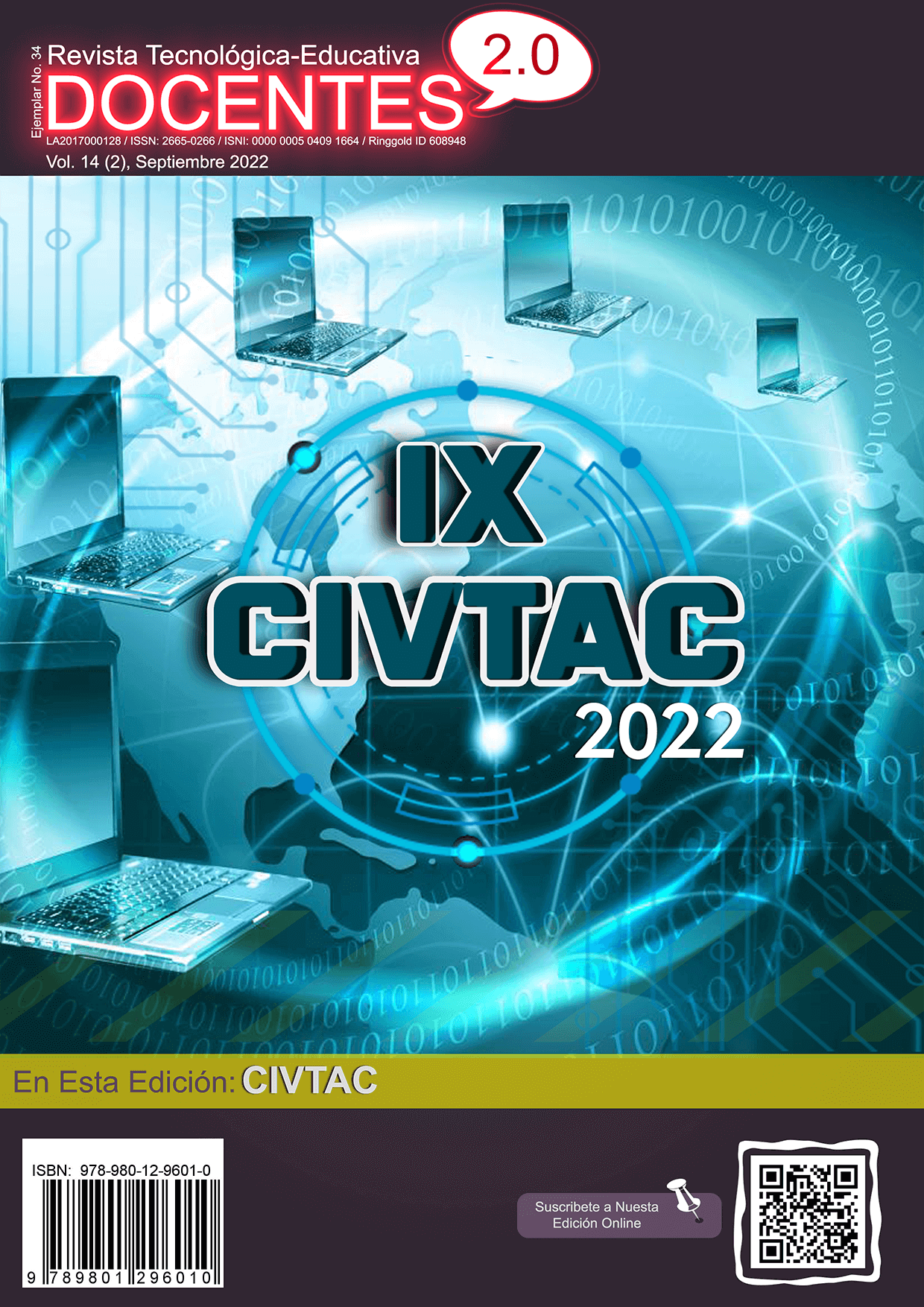Influence of Project-Based Learning in the Teaching-Learning of History
 DOI:
https://doi.org/10.37843/rted.v14i2.310
DOI:
https://doi.org/10.37843/rted.v14i2.310
Main Article Content
Abstract
Vygotsky's sociocultural theory of human learning describes learning as a social process and the origin of human intelligence in society and culture. This theory affirms that social interaction plays a fundamental role in the development of cognition and that learning occurs at two levels: through interaction with others. This research aimed to analyze the influence of Project-Based Learning (PBL) on teaching and learning history. It was based on the Research-Action method, a socio-critical paradigm, with a qualitative approach, with an exploratory-sequential design of a sequential type as emancipatory criticism. For a population of 30 students in the sixth grade of the Agricultural Technical Educational Institution of La Rinconada, Mompós, Bolívar. Likewise, information collection techniques and instruments were used in the methodology, such as direct non-participant observation, diagnostic and validation evaluation, and teacher survey. A pedagogical proposal was designed under the virtual modality due to the mandatory confinement by COVID-19. After the application of the projects, the strengthening of the teaching and learning process was evidenced because the teachers defined their role in the classroom and learned new innovative methodologies; the students were able to learn a method to develop school activities in an autonomous, active, participatory and meaningful way; and finally, improvement in academic performance was evidenced, strengthening skills, abilities, and competencies from the conceptual, procedural and attitudinal aspects in the subject of History.
Downloads
Metrics
Article Details

This work is licensed under a Creative Commons Attribution-NonCommercial-NoDerivatives 4.0 International License.
Those authors who have publications in our journal accept the following terms:
- When a work is accepted for publication, the author retains rights of reproduction, distribution of his/her article for exploitation in all countries of the world in the format provided by our magazine and any other magnetic medium, optical, and digital.
- Authors will retain their copyright and guarantee the journal the right first to publish their work, which will be simultaneously subject to the Creative Commons Acknowledgment License (Attribution-NonCommercial-NoDerivatives 4.0 International (CC BY-NC-ND 4.0)). That allows third parties to copy and redistribute the material in any medium or format, under the following conditions: Acknowledgment - You must properly acknowledge authorship, provide a link to the license, and indicate if any changes have been made. You may do so in any reasonable way, but not in a way that suggests you have the licensor's endorsement or receive it for your use. NonCommercial - You may not use the material for a commercial purpose. NoDerivatives - If you remix, transform, or build from the material, you cannot broadcast the modified material. There are no additional restrictions - You cannot apply legal terms or technological measures that legally restrict you from doing what the license allows.
- Authors may adopt other non-exclusive license agreements to distribute the published version of the work (e.g., deposit it in an institutional archive or publish it in a monographic volume) provided that the initial publication in this journal is indicated.
- Authors are allowed and recommended to disseminate their work through the Internet (e.g., in institutional telematic archives, repositories, libraries, or their website), producing exciting exchanges and increasing the published work's citations.
- Request of withdrawal an article has to be done in writing by the author to the Editor, becoming effective after a written response from the Editor. For this purpose, the author or authors will send correspondence via e-mail: [email protected].
- The author will not receive financial compensation for the publication of his work.
- All Docentes 2.0 Journal publications are under the Open Journal System (OJS) platform at: https://ojs.docentes20.com/.
References
Aguilar, S., & Barroso, J. (2018). La triangulación de datos como estrategia eninvestigación educativa . Core , 73-88.
Arias, F. (2006). El proyecto de Investigación. Introducción a la metodología científica. Editorial Episteme.
Arnal, L. (1992). Investigación educativa. Fundamentos y metodología. Labor, 178- 184.
Ausín, V., Abella, V., Delgado, V., & Hortigüela, D. (2016). Aprendizaje Basado en Proyectos a través de las TIC. Una Experiencia de Innovación Docente desde las Aulas Universitarias. Universidad de Burgos. DOI: https://doi.org/10.4067/S0718-50062016000300005
Brenes, F. (2006). Evaluación diagnóstica, formativa y sumativa de los aprendizajes. Editorial EUNED.
Biblioteca del Congreso Nacional de Chile. (2015). Aprendizaje Basado en Proyectos. Torneo Delibera.
Cobo, G; & Valdivia, S (2017). Aprendizaje basado en proyectos. En Colección de materiales de apoyo a la docencia. PUCP. http://idu.pucp.edu.pe/wp-content/uploads/2017/08/5.-Aprendizaje-Basado-enProyectos.pdf
Ciro, C. (2016). Aprendizaje Basado en Proyectos (A.B.Pr) Como estrategia de Enseñanza y Aprendizaje en la Educación Básica y Media. Universidad Nacional de Colombia.
García, M., & Quijano, M. A. (2015). El aprendizaje basado en proyectos como vía para incentivar el pensamiento científico. Universidad Industrial de Santander.
González, N. (2018). El aprendizaje basado en proyectos en la enseñanza de la historia. Valladolid, España : Universidad de Valladolid.
Hernández-Sampieri, R., Fernández-Collado, C., & Baptista-Lucio, M. (2014). Metodología de la Investigación. McGraw-Hil.
Ministerio de Educación Nacional. (2015). Aprendizaje Basado en Proyectos. Secretaría general técnica de España.
Ortega, S. (2009). El Contexto de Uso de la Evaluación Formativa. http://www.sortega.com/blog/el-contexto-de-uso/
Rodríguez, S. (2012). Formación de maestros para el presente: memoria y enseñanza de la historia reciente. Revista Colombiana de Educación, (62), 163-186. DOI: https://doi.org/10.17227/01203916.1633
Valenzuela, J. R., & Flórez, M. (2012). Fundamentos de Investigación Educativa. Editorial Digital Tecnológico de Monterrey.
Vélez, G., & Herrera, M. (2014). Formación política en el tiempo presente: ecologías violentas y pedagogías de la memoria. Nómadas, 41.
Vygotsky, L. (1979). Teoría socio- cultural. Grijalbo.






